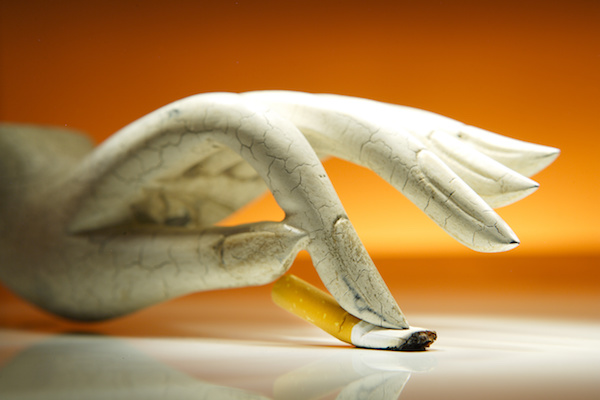
Did you know that when you quit smoking, changes occur within your body in a matter of minutes, hours, days, and years after you smoke your last combustible cigarette? Since the process of quitting can be challenging for many, those looking to kick the habit may benefit from seeing a timeline of what to expect when they quit in terms of health and well-being. This is that timeline!
20 minutes after quitting smoking
Your body starts changing in as little as 20 minutes after you smoke your last combustible cigarette. Your heart rate drops and your blood pressure decreases.
2 hours after quitting smoking
Within two hours of smoking your last combustible cigarette, your peripheral circulation improves. Peripheral veins and arteries are located in the arms, hands, legs, and feet, supplying oxygen throughout the body. As your body rids itself of the chemicals, it will start to feel warmer with added circulation.
12 hours after quitting smoking
After just 12 hours of smoking your last combustible cigarette, your body starts to cleanse itself of excess carbon monoxide. Levels are then able to return to normal, increasing your oxygen levels.
1 day after quitting smoking
When you make it to one day (24 hours) without a combustible cigarette, your heightened oxygen levels can now easily reach the heart and muscles. At this point, your risk of developing coronary disease or having a heart attack due to smoking declines.
2 days after quitting smoking
When you make it to two days (48 hours) without a combustible cigarette, the nerve endings that are responsible for smell and taste heal and allow the ex-smoker to enjoy their heightened senses.
7 days after quitting smoking
Within a week of smoking your last combustible cigarette, your body produces higher levels of protective antioxidants in the blood.
2 to 3 weeks after quitting smoking
Having likely to have gotten over the shock of physical withdrawal at this point, two to three weeks after quitting combustible cigarettes, a person can then begin to tackle the mental side of their nicotine addiction. That said, exercise becomes easier to do—lungs are clear and blood is circulating better—at this point and can become a great distraction from nicotine withdrawal.
1 year after quitting smoking
It’s been a year since you quit combustible cigarettes. Your lungs have experienced dramatic health improvements in terms of capacity and functioning, making it much easier to breathe without exerting yourself. You probably cough less too!
5 years after quitting smoking
After 5 years without smoking, the body has healed itself enough for the arteries and blood vessels to begin to widen again. This widening means that your blood will be less likely to clot, lowering your risk of stroke. This risk continues to decrease as the years go on.
10 years after quitting smoking
After 10 years without smoking, you’ve reached a monumental milestone. Your risk of developing lung cancer is about half that of a person who is still smoking. Your risk of developing cancer of the bladder, esophagus, and kidney also decreases.
It’s no secret that the long-term benefits of quitting smoking are huge and since the sooner you quit, the sooner your body can start repairing itself, it’s never too late to start your journey.
While quitting cold turkey is easy for some, e-cigs are an excellent way to quit smoking. They offer a safer way to manage your nicotine intake and remove tobacco from the equation. Shop our wide selection of e-cigs here.
Was there a stage in your quit-smoking journey where the best way to quit smoking was e-cigs? Drop a comment below to give us your opinion.
The post What happens to your body when you quit smoking appeared first on Blog Vape-Ecigs.




